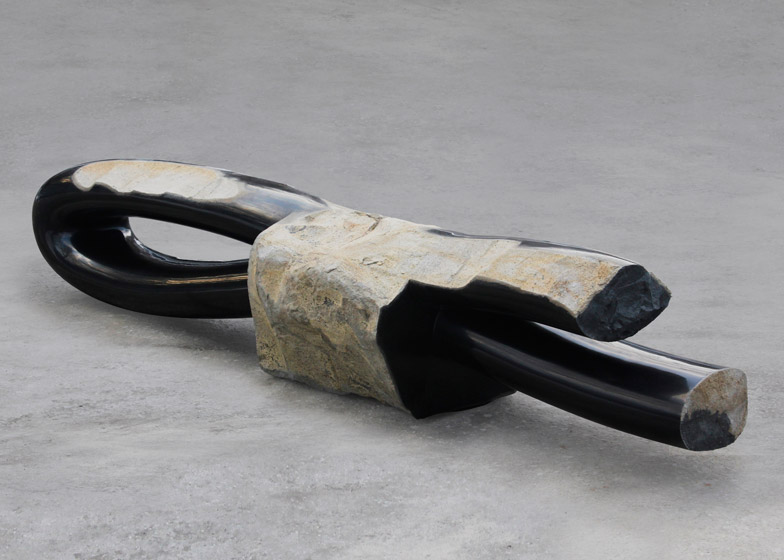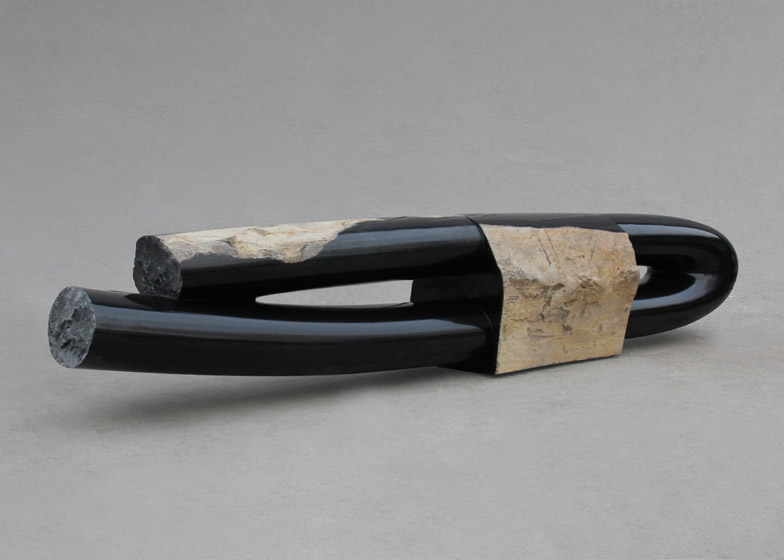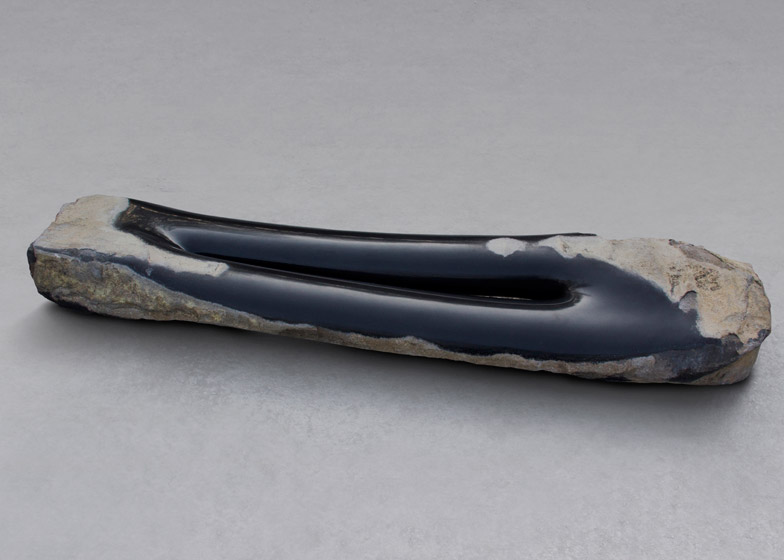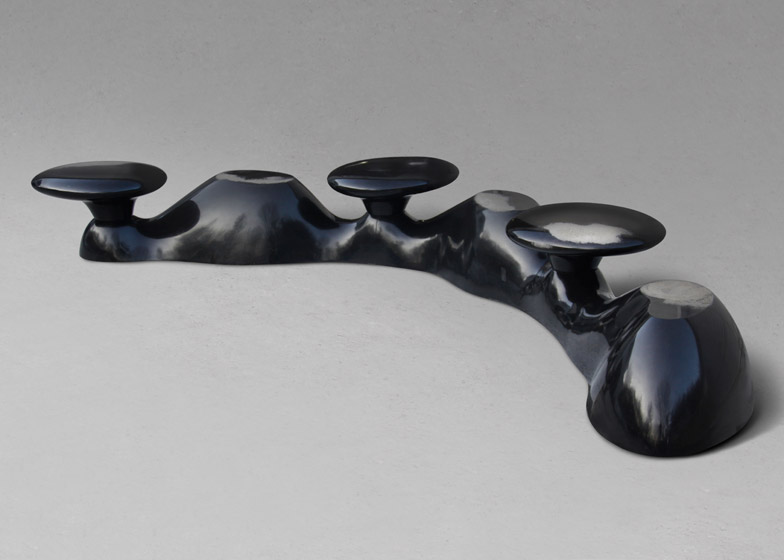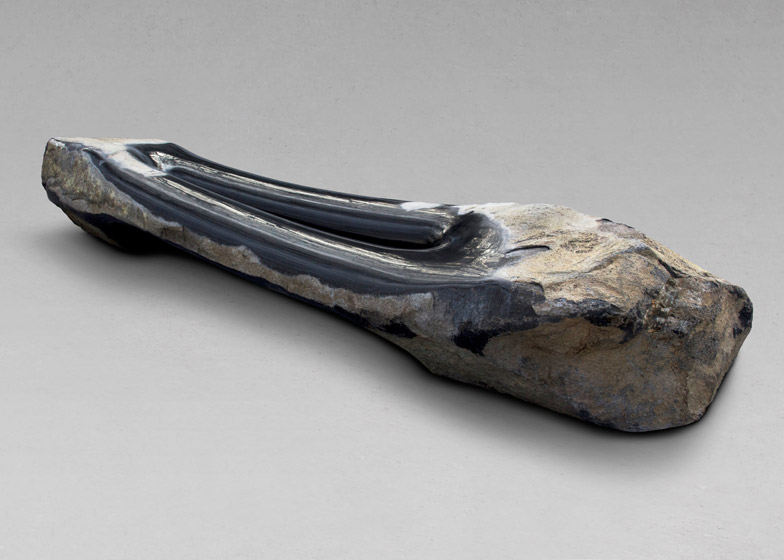Design Miami/Basel 2015: South Korean artist Byung Hoon Choi has used Southeast Asian basalt to create a collection of sculptures that double up as oversized outdoor furniture (+ slideshow).
Each of Choi's pieces is cut, carved and polished by hand from a single piece of the igneous rock.
One piece resembles a huge stick of liquorice folded in half, while another looks like a series of alternating mountains and mushrooms, playing with the sense of scale.
Carole Hochman, director of the New York gallery Friedman Benda that represents the artist, described the collection as "an indoor landscape similar to a Zen garden".
When sculpting each design, Choi responds to the existing form of the rock – leaving some areas raw while polishing other areas.
"His work thrives on tension, balance, humour, and the implausible wholeness of each work," said the gallery.
Choi's references include the brushstrokes of traditional ink painting, the duality of yin and yang and the ancient Dolmens of Korea.
"Conceived as minimal and based on swift brushstrokes, these works are once raw and refined," the gallery said. "They are graphic statements hewn from great expanses of igneous rock – their forms animated by both their inherent material characteristics and the choices and skills of the artist."
Although the works appear to be purely sculptural, they also function as outdoor benches. One was also recently used as an indoor coffee table by interior designer Juan Montoya at a show house in Kip's Bay, Manhattan.
Friedman Benda is presenting the series at this year's Design Miami/Basel design-art fair as part of a solo installation. It is Choi's debut appearance at the fair.
"The intention is to encourage visitors to take a moment to pause, engage and reflect within the environment," Hochman told Dezeen. "We hope that visitors will be inspired by the sheer scale and composition of these awe-inspiring works."
Choi's benches will be at Friedman Benda's booth at Design Miami/Basel from 17 to 22 June 2015.
His work also features in collections throughout South Korea, including the National Museum of Contemporary Art and the Korean Culture and Art Foundation, and in the permanent collections of the Vitra Design Museum and the Metropolitan Museum of Art.
Photography is by Byung Hoon Choi and Friedman Benda.

